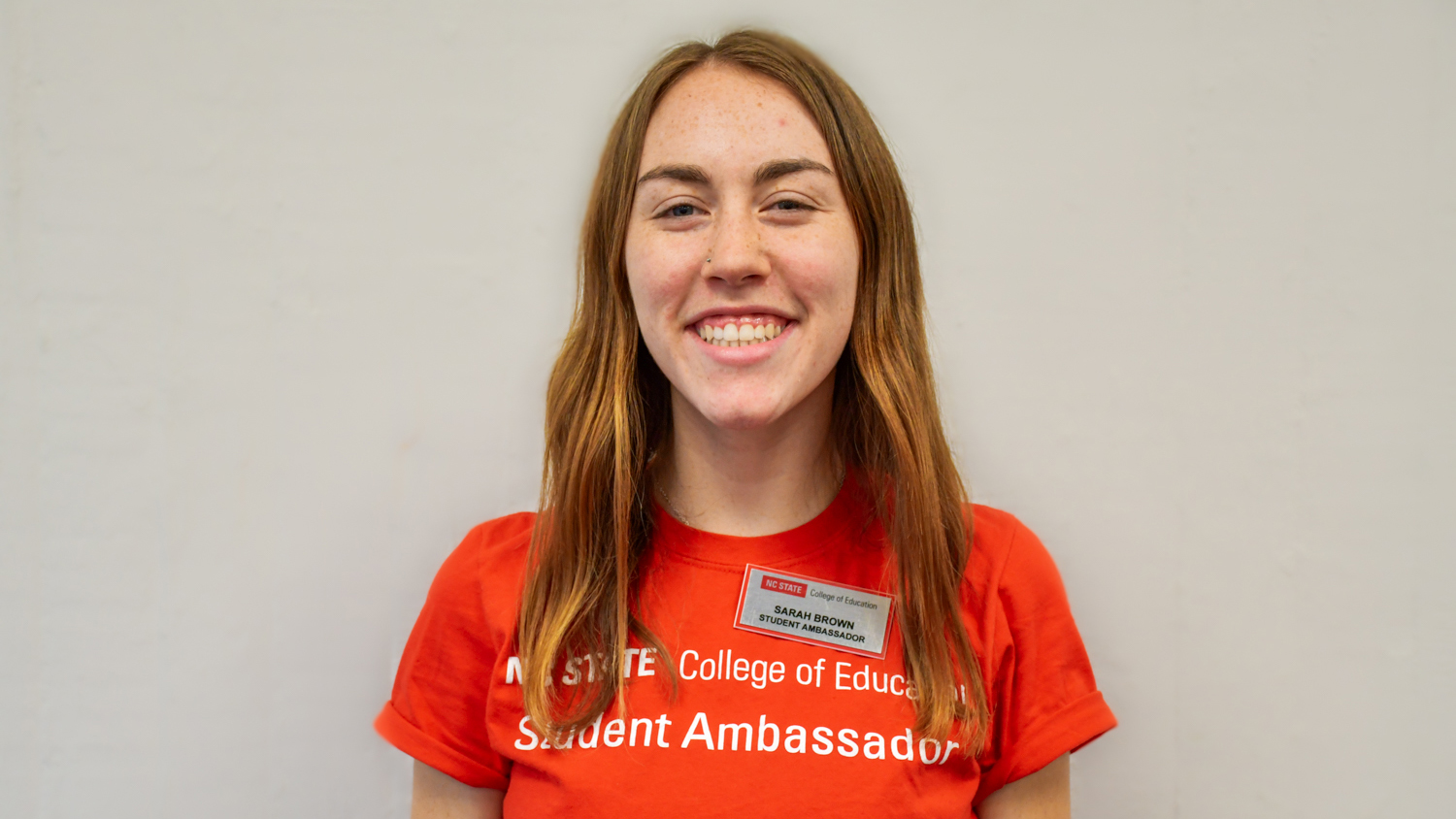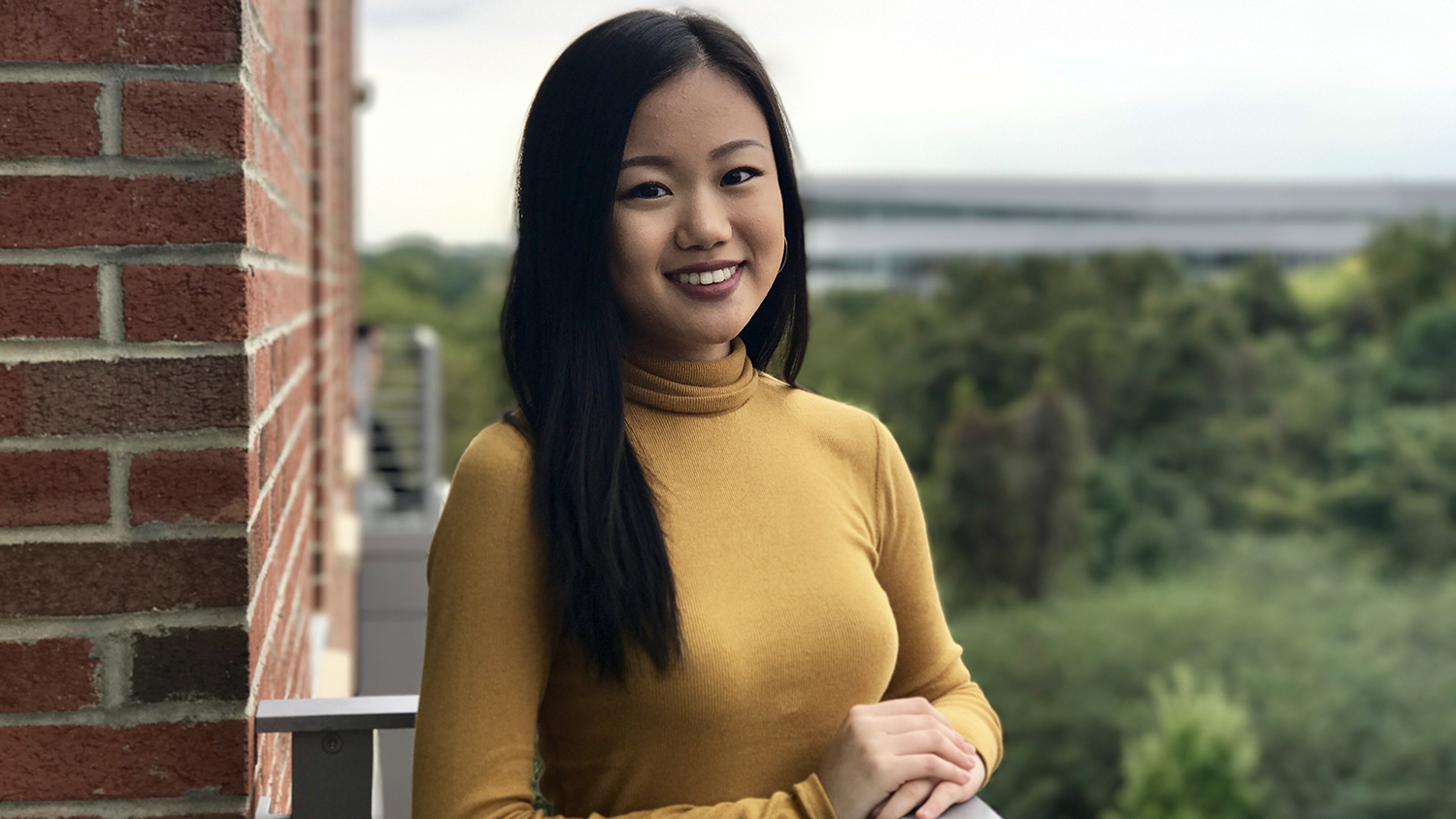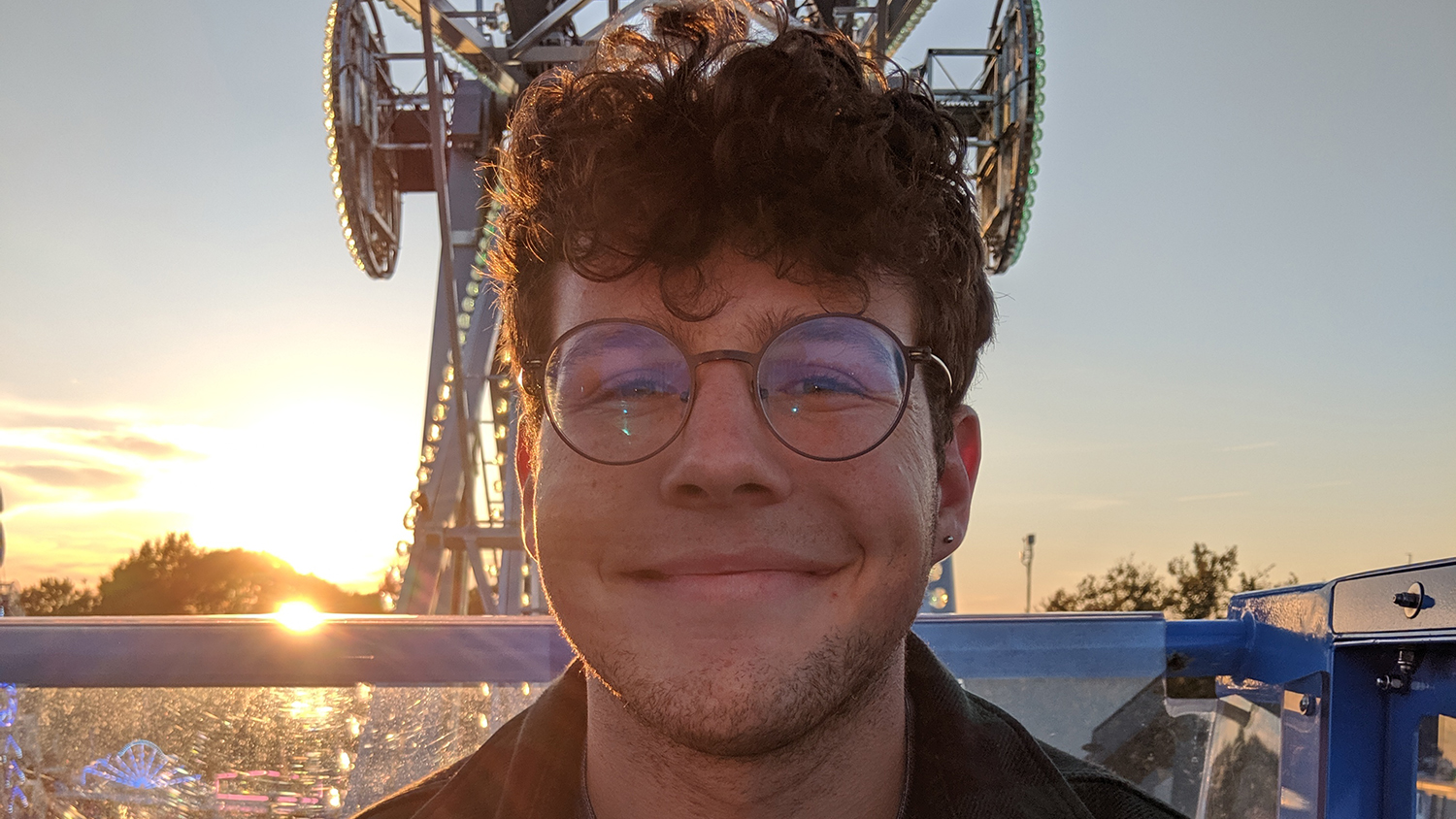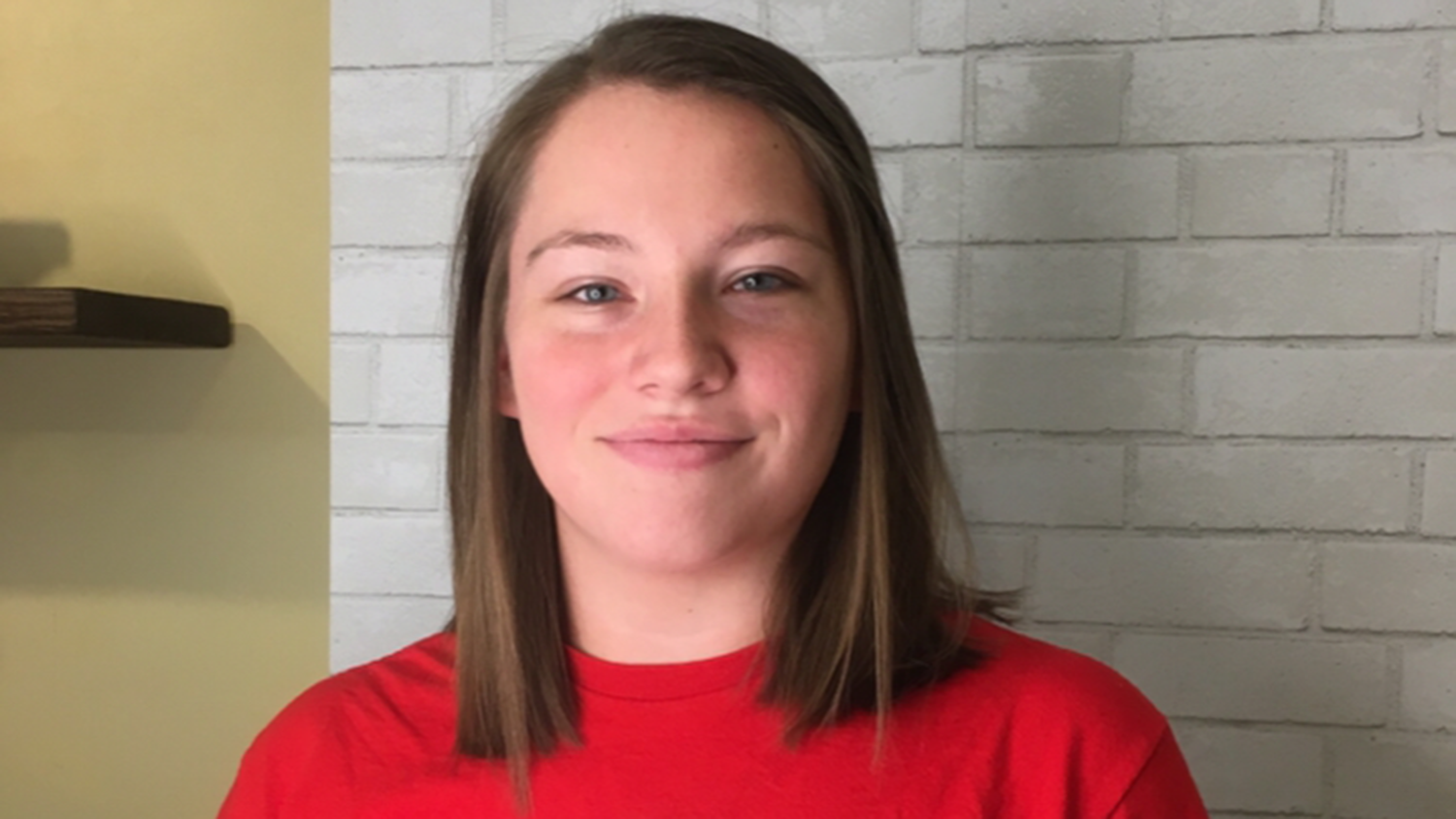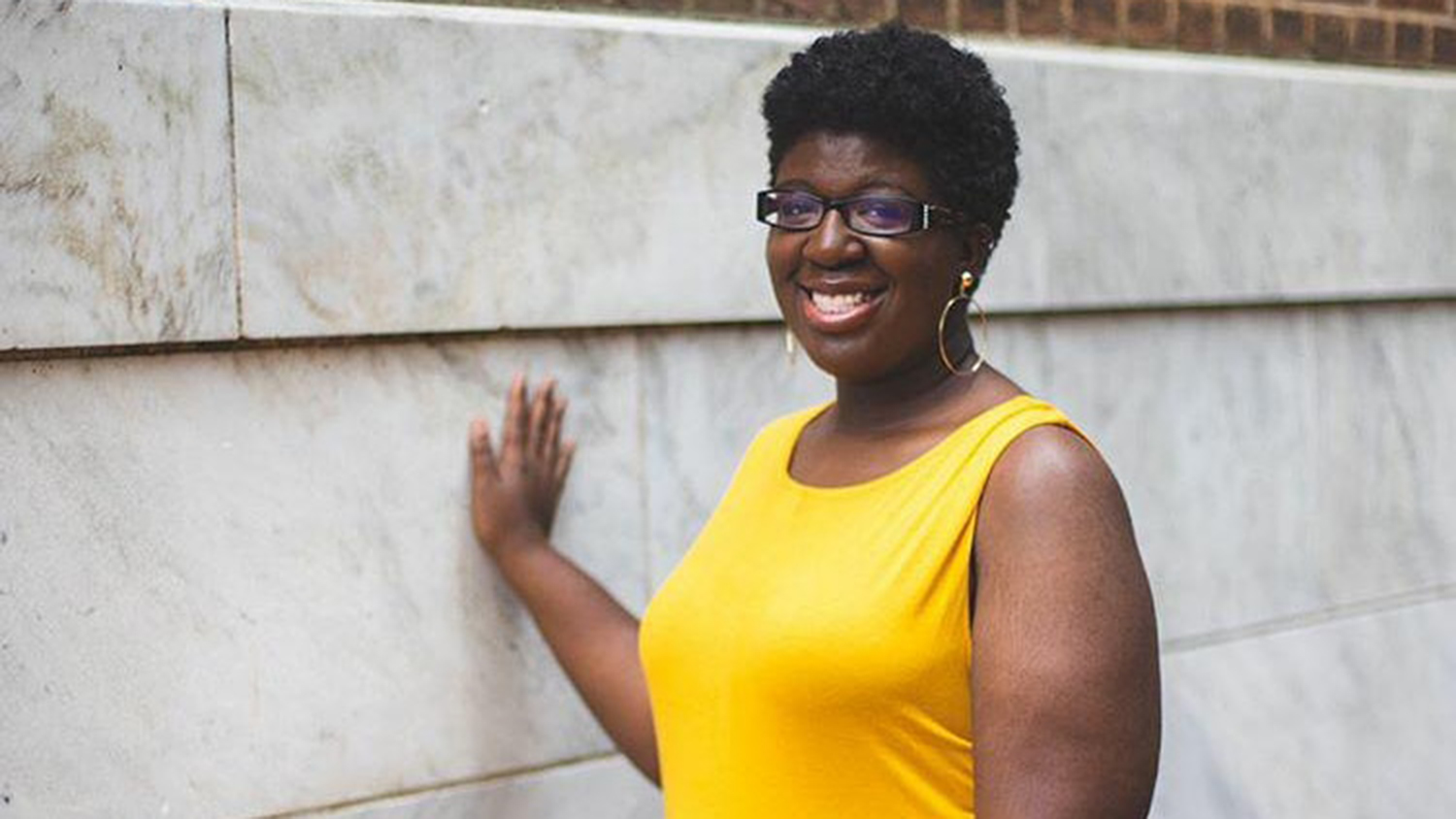Developing Extraordinary Educators Through Field-Based Learning
*Interviews were conducted and content was created in early 2020.
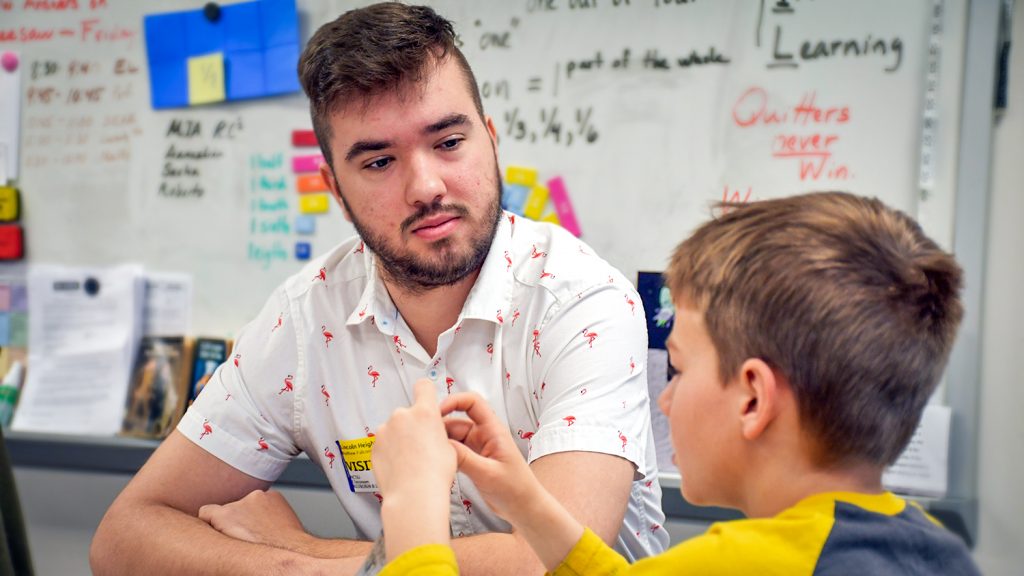
Science education major Sarah Brown ‘21 loves how science is full of discovery and that feeling you get when you understand a complex scientific concept for the first time. And she wants others to feel that same excitement. That’s why she is studying to become a high school biology teacher. But through the NC State College of Education and its field-based experiences, Brown has also discovered a deep passion for special education.
During her Intro to Teaching in Today’s Schools course, Brown was placed at Centennial Campus Magnet Middle School in a curriculum assistance class with about six students. She was able to work with students with varying special needs and skill levels and across several subject areas.
“NC State has prepared me through rigorous coursework, valuable field experiences and leadership opportunities,” she said. “My field experiences have exposed me to real life situations that I would not have been able to encounter in an education course.”
Undergraduate pre-service teachers get professional experience early and often throughout their time at NC State. One effect of that is that the pre-service teachers who go on to work in their own classrooms after graduation rate among the best in North Carolina on statewide performance measures of teacher effectiveness such as content knowledge and leadership ability.
“We firmly believe that our teacher candidates should see as many different teachers in as many different environments as feasible throughout their time here,” said Sarah Cannon, Ph.D., teaching assistant professor and assistant director of professional education. “Each teacher has a unique style and each of our candidates is working on developing theirs. By getting our candidates in the field during their sophomore year, we are giving them early opportunities to see more teachers.”
In the NC State College of Education, field-based experiences vary by program but start during the students’ sophomore year and continue each semester. These experiences occur in a variety of public K-12 school settings and culminate their senior year with a year-long professional placement that includes a semester of student teaching.
Teacher candidates accumulate as much as 900 hours of field work by the time they graduate.
“The diversity in the field experiences prepares them for their own classroom, wherever that may be,” said Keith Walkowiak, the university-school partnership coordinator for the elementary education undergraduate program. “The earlier the students get into the classroom, the greater their confidence will be when it is time to take over their own classroom.”
Here’s a look at some of the different field-based experiences the college’s elementary education, middle grades education and STEM education majors have undertaken over the past year throughout their coursework.
Our field experiences are unique in that we really emphasize intentional, co-created partnerships. In our core courses, we co-construct our students’ experiences with the administration and faculty at our partner schools. The school personnel know what makes each school special and are able to convey their unique qualities to our team.
Sarah Cannon, Ph.D., Teaching Assistant Professor and Assistant Director of Professional Education
Sophomore Year
During sophomore year, teacher candidates enroll in either ELM 250: Introduction to Elementary Education, ED 204: Introduction to Teaching in Today’s Schools or AEE 206: Introduction to Teaching Agriculture, depending on their major. It is their first experience observing in a classroom.
Elementary education students spend about 15 hours in the field with their main focus on K-5 classrooms. Connie Kim ‘20, an elementary education major, loved every minute of her first experience in the classroom. Her favorite lesson was a supply and demand lesson, where the kids were in a ‘mock factory’ setting and made paper donuts in teams. It was an experience that stuck with her.
“It’s one thing to learn about things in class, but to actually be out in the field and spending time with the kids is the best way to grow as a teacher,” she said.
The college has a partnership with Centennial Campus Magnet Middle School, where all students, except elementary education majors, complete their placements. Elementary education majors are placed in partner elementary schools throughout Wake and Johnston counties.
“We want our students in ED204 to really value the importance of building relationships with students and fostering students’ social and emotional learning,” Cannon said.
Once a week, students observe a Professional Learning Team (PLT), participate in lunchtime talk, observe in a couple of classrooms or conduct a service learning project. This allows students to be able to observe different learning environments and teaching styles.
“I learned a lot about IEPs [Individualized Education Programs] from my participating teachers, which I think will be useful when I become a teacher,” said Brown, who observed a curriculum assistance class during her first field experience as a sophomore and worked with students of varying special needs. “I also learned a lot about helping students who do not want your help. I had to try many different approaches to engage with certain students successfully.”
Teachers at Centennial also work with College of Education students to provide them with classroom experience. For Don Bui ‘22, that meant leading the warm-up one morning in Mike Magee’s seventh grade social studies class.
Extensive fieldwork aligned to coursework is an important component of this teacher preparation program. Additionally, the STEM aspect of the program provides an instructional focus in the STEM fields. By sending our students to the same partner schools each semester, we have developed a deep and mutual understanding of what is expected from our students.
Keith Walkowiak, University-school Partnership Coordinator, Elementary Education
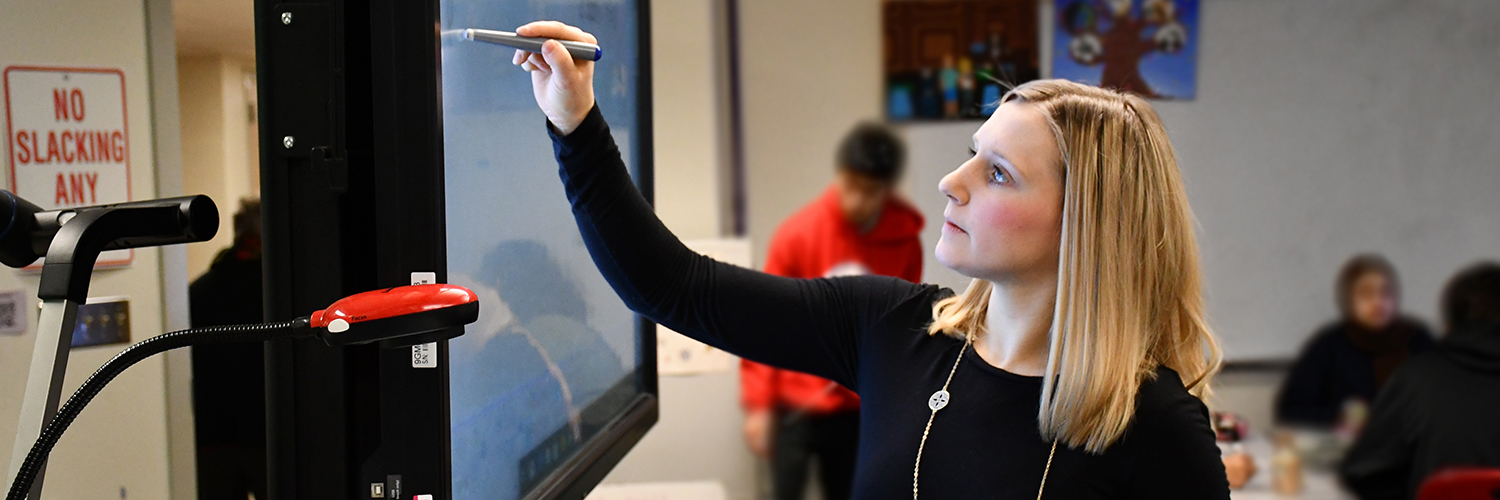
Junior Year
During their junior year, all College of Education students complete ED 311: Classroom Assessment, Principles and Practices and ED 312: Classroom Assessment, Principles and Practices Lab, assessment courses where they plan classroom lessons based on data.
Elementary education majors also complete methods courses that focus on mathematics, reading, science, engineering and cultural identity, social justice and diverse learners, which also have field placement components. They attend partner schools throughout Wake and Johnston counties for their placements, where they spend about 92 hours each semester in the field. The fall semester focuses on K-2 classrooms and the spring semester is focused on 3-5 classrooms.
“Being in a different grade and school every semester was really beneficial for me,” Kim said. “I got to see the pros and cons of each grade level because each one is such a different experience, and I wasn’t sure which grade I wanted to teach at first.”
Matthew Falcone ‘21, an elementary education major, completed his ELM 460: Social Studies for the Young Learner field placement at Lincoln Heights Elementary School, where he had the chance to apply the skills he’s learning in his classes to an actual third-grade classroom.
A partnership with Dillard Drive Middle School and Athens Drive High School allows students with other majors to divide their placements among the two schools.
Will Pequigney ‘20, a mathematics education major, served in an English language learners math class for his ED 311/312 course, which was a special experience for him. He helped students who had dissimilar mathematical backgrounds.
“My lead teacher, who was a recent NC State graduate, gave me opportunities to teach, to help, to grade and to observe,” he said. “Their help and the amazing students reinforced my love for teaching math.”
Once a week, students either observe a Professional Learning Team (PLT), attend School Improvement Plan (SIP) Team meetings, observe a special education or English as a second language classroom or conduct a re-engagement lesson. A re-engagement lesson is when a student observes the lead teacher, takes a lesson, assesses it, gathers data and plans a teaching lesson based on the data gathered.
Cheyenne Quarless ‘21 taught her re-engagement lesson at Dillard Drive, where she sat down with students for a text-based evidence lesson on the Middle Ages.
We firmly believe that our teacher candidates should see as many different teachers in as many different environments as feasible throughout their time here. Each teacher has a unique style and each of our candidates is working on developing theirs. By getting our candidates in the field during their sophomore year, we are giving them early opportunities to see more teachers.”
Sarah Cannon, Ph.D., Teaching Assistant Professor and Assistant Director of Professional Education
Senior Year
As seniors, all students complete a year-long professional placement that culminates with student teaching. During the first semester, students report to the classroom where they will complete their student teaching assignment. They observe, assist and are involved in the instruction of individual students or small groups of students. This time is also valuable in learning the climate, culture and structure of the mentor teacher as well as building a relationship and rapport with the students in the classroom.
During the second semester, all students complete their student teaching. They assume major classroom planning and instructional responsibilities. Elementary education majors are placed in a K-5 classroom based on their grade-level preference. They spend 15 weeks in the classroom, where they take on a full-time teaching role and finish the semester with about 600 hours of experience.
Throughout their time in the STEM-focused elementary education program, they have experienced both upper and lower elementary classrooms at four different schools, providing diverse and varied field experiences.
“I am excited to be with the kids every day and continue to see them grow, as well as see myself grow,” said Kim, who is student-teaching at Kingswood Elementary in Cary.
Jessie Taylor ‘20, a senior majoring in technology, engineering, and design education, is completing her student teaching this semester at Mount Pleasant Middle School in Cabarrus County — one of the college’s district partners through the NC State Education Scholars program. As an NC State Education Scholar, Taylor will receive a $10,000 financial award if she teaches for at least two years in Cabarrus County after completing her student teaching there and graduating.
“I am most excited about teaching close to home in a somewhat familiar place,” she said. “I have the honor of teaching in a rural area in North Carolina after I graduate while receiving two years of financial compensation.”
Hailey Mesmer ‘20, a mathematics education major, completed her student teaching experience at Wake STEM Early College High School.
The diversity in the field experiences prepares them for their own classroom, wherever that may be. The earlier the students get into the classroom, the greater their confidence will be when it is time to take over their own classroom.
Keith Walkowiak, University-school Partnership Coordinator, Elementary Education
